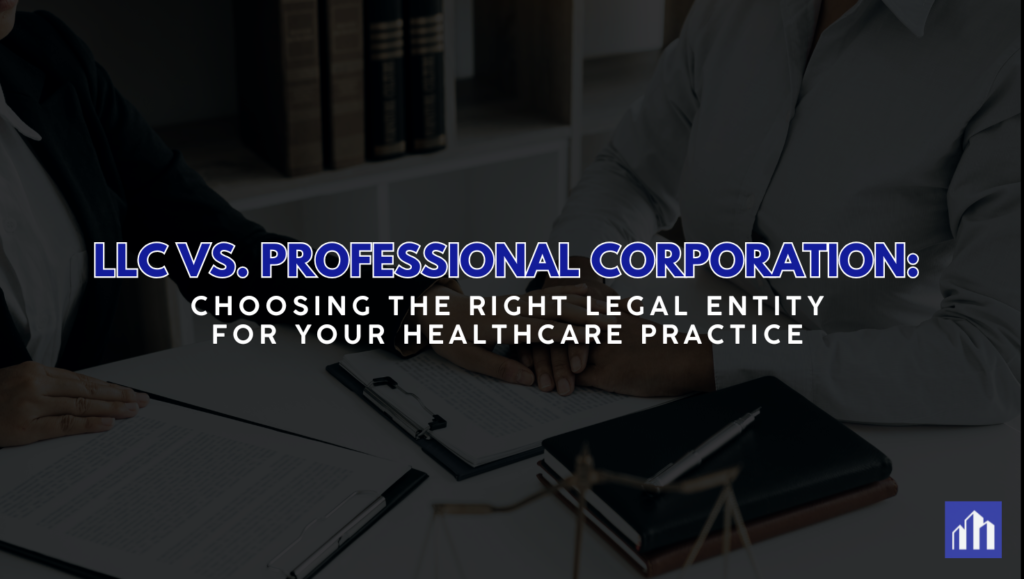When establishing a healthcare practice, selecting the appropriate legal entity is crucial for managing liability, taxation, and compliance. In California, licensed professionals, such as physicians and dentists, typically choose between forming a Professional Corporation (PC) or a Professional Limited Liability Company (PLLC). It’s important to note that California does not permit licensed professionals to form standard Limited Liability Companies (LLCs) for providing professional services.
Liability Protection
Both PCs and PLLCs offer limited liability protection, meaning that the personal assets of the owners are generally protected from business debts and claims. However, this protection does not extend to personal malpractice. Licensed professionals remain personally liable for their own acts of negligence or malpractice, regardless of the entity structure. Therefore, maintaining adequate professional liability insurance is essential.
Tax Considerations
Taxation is a significant factor when choosing between a PC and a PLLC. By default, a PC is taxed as a C Corporation, subjecting it to corporate income tax rates. This can lead to double taxation, where the corporation pays taxes on its income, and shareholders also pay taxes on dividends received. However, a PC can elect S Corporation status by filing IRS Form 2553, allowing income to pass through to shareholders and be taxed at individual rates, thereby avoiding double taxation.
A PLLC offers greater tax flexibility. By default, a single-member PLLC is treated as a disregarded entity, with income and expenses reported on the owner’s personal tax return. A multi-member PLLC is taxed as a partnership. Additionally, a PLLC can elect to be taxed as an S Corporation, potentially reducing self-employment taxes on a portion of the income.
Compliance Requirements
Forming and maintaining a PC or PLLC involves specific compliance obligations. In California, all shareholders of a PC must hold the same professional license, and the corporation’s activities are limited to rendering professional services. The formation process requires filing Articles of Incorporation with the state and obtaining approval from the relevant licensing board. Ongoing compliance includes adopting bylaws, issuing shares, holding regular meetings, and filing annual reports.
For a PLLC, the formation process is similar, involving the filing of Articles of Organization and adherence to state-specific regulations. While PLLCs generally have fewer formalities than PCs, they are still required to maintain a registered agent and file periodic reports. It’s also advisable for members to adopt a written operating agreement outlining management and ownership structures.
Conclusion
Choosing between a Professional Corporation and a Professional Limited Liability Company for your healthcare practice depends on various factors, including desired tax treatment, management preferences, and compliance capabilities. Given the complexities involved, it’s prudent to consult with legal and tax professionals to determine the most suitable entity for your specific circumstances.
Need personalized guidance for your healthcare business? Book a free call with us to discuss your options and ensure you’re on the right path. Schedule your consultation today at https://calendly.com/andrew-mahinay/30min.

